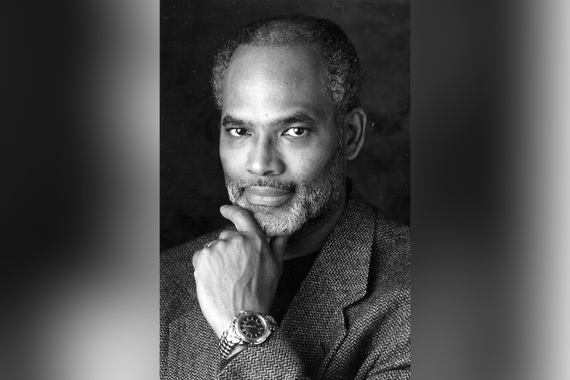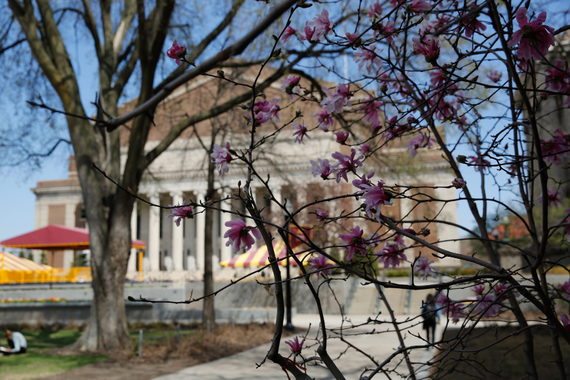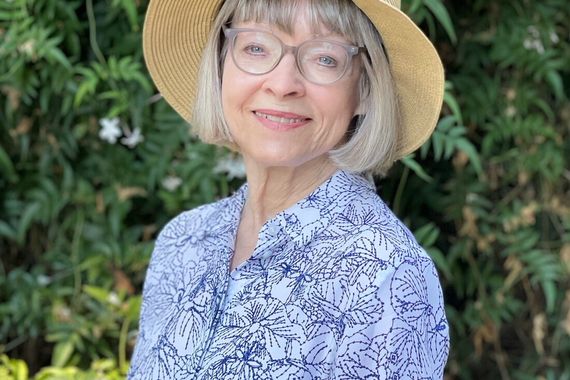At the Heart of Change
Northrop Professor Kevin P. Murphy (history) has been appointed as the inaugural faculty director for the Liberal Arts Engagement Hub. Murphy brings a long history and passion for community-engaged work to this role and will put The Hub on a strong foundation on which to lean into its mission and vision.
A faculty member in CLA since 2002, Murphy has spent his career at the University focusing on community-collaborative projects, including serving as the curator for the “Cedar-Riverside: Histories and Visions” exhibition of public history projects at the Hennepin History Museum in 2005, serving as the co-founder and principal investigator for the Twin Cities GLBT Oral History Project from 2003 to 2010, and serving on the Curatorial Advisory Board for the “Owning Up: Racism and Housing in Minneapolis” exhibit at the Hennepin History Museum in 2018–19.
Having devoted himself to building programs that facilitate equity and justice-oriented community collaboration, Murphy is currently on the faculty leadership team of Minnesota Transform, a $5 million higher education initiative funded by The Andrew W. Mellon Foundation that addresses transformational, decolonial, and racial justice in the University, Twin Cities, and Minnesota through public humanities projects. He is also a co-founder of the multi-disciplinary heritage studies & public history graduate program and helped develop what is now known as the Center for Race, Indigeneity, Disability, Gender & Sexuality (RIDGS).
The development of The Hub was inspired by the Humanities Action Lab, for which Murphy is a co-founding partner and a member of the steering committee. In addition to his work to further the work of the Humanities Action Lab across multiple community colleges, colleges, and universities, community and activist organizations, and humanities institutes around the nation, he has also served as an organizer for all of their collaborative projects at the University of Minnesota, including the Guantánamo Public Memory Project, States of Incarceration, and Climates of Inequality: Stories of Environmental Justice Project.
Murphy has served as an instructor or co-instructor for undergraduate courses and graduate seminars and curated traveling exhibits, which featured student projects created in those courses and seminars.
In 2015, Murphy served on the College’s Roadmap Engagement Goal Team and strongly advocated for CLA to “...create an ‘action lab’ responding to charged public issues with thoughtful, medium-term community engagement projects” as a way of transforming public engagement in the College.
When CLA was deciding how to use renovated space in Pillsbury Hall not needed by the Department of English, he advocated for using space to put that recommendation into action, leading to the birth of the Liberal Arts Engagement Hub, referred to as The Hub.
Murphy will assume his three-year faculty director appointment on August 1 and took time at the end of the academic year to answer a few questions.
Describe your view of community engagement
My overall approach to community engagement or collaboration aligns with the Liberal Arts Engagement Hub’s vision statement. I believe that community-engaged work must be reciprocal and not extractive. This is important because many of the University’s historical relationships with BIPOC and marginalized communities have involved extraction and harm, which has led to significant distrust of the institution. Community-engaged work should invest in, cultivate, and support partner organizations’ goals in a way that is thoughtful and based on sustained relationship-building. Engaged work needs to be oriented to meaningful change; it should never leave hierarchies and relations of power intact and unaddressed.
Reciprocal engagement also means that those of us within the University should not see ourselves merely as offering knowledge or expertise; instead, our partners should set priorities and the terms of engagement for the co-creation of knowledge and interpretation. This process of co-creation can then be deployed to make the University accountable to, and help it learn from, the communities it has often excluded, neglected, or harmed.
What are you looking forward to as faculty director of The Hub?
I look forward to learning from all the vital and impressive community organizations that are working to make Minnesota a better, more equitable, and more just place for everyone. During my years at UMN, I’ve been fortunate enough to engage with so many amazing community partners, including community centers like the Aliveness Project, which offers support to and brings together people living with HIV, and arts and cultural organizations like the Soomal House of Art, which fosters collective support and action among Somali visual artists.
Along with the rest of those working with The Hub, I’d like to do everything possible to connect these organizations with the rich resources and expertise that CLA and the University have to offer and, most importantly, to facilitate opportunities for those of us who work and study at the University to benefit from knowledge produced outside of the University. I’m especially passionate about advancing the antiracist and decolonial mission of The Hub by helping to cultivate respectful and reciprocal relationships.
How has your teaching changed from when you first entered a classroom to the ones in which you engage today?
When I first started teaching, I took a more traditional approach in many classes and often focused on ensuring that students learn and respond to a certain body of historical content. While that goal is still important, I’ve become much more invested in sharing authority with students in the classroom, which has involved more collective interpretation of historical source materials, student-led discussion, and creative assignments— including media-making and exhibition-development.
I’ve realized that students do best, and are most satisfied, when they are actively involved in researching and interpreting histories and cultures, and when they create work that goes beyond the classroom. They benefit even more when they collaborate with each other and community partners. It’s been thrilling to collaborate with students on publicly engaged projects.
Your formal education took place in New York and Washington DC. What brought you to Minnesota and what has kept you here?
The first time I visited Minnesota was for the faculty job interview—and that happened during February! I had heard good things about the Twin Cities and the state for a long time but, to be honest, I had never planned to leave the East Coast. It didn’t take me long to find things to love here. There’s great art and music as well as social justice work. I also very much appreciate working for a large public institution in a major metropolitan area; that has allowed me to connect my research and teaching to communities I’m invested in. This was certainly the case for the collaborative GLBT Oral History Project that I co-founded and worked on for almost a decade and remains true for the public humanities projects I’ve been participating in as part of the Minnesota Transform grant initiative.
It’s been a real privilege to be in a place where there is so much passion for addressing historical legacies of violence and inequity; this has certainly been manifest in all of the essential and inspiring racial justice activism and mutual aid work that we are seeing in this moment.


